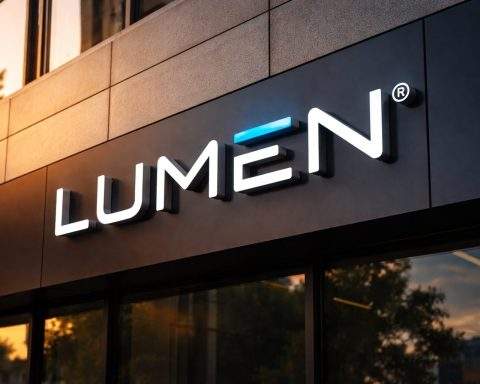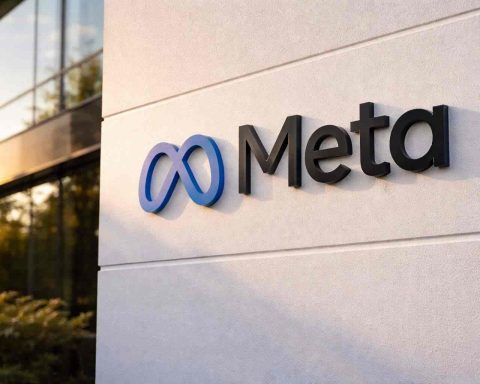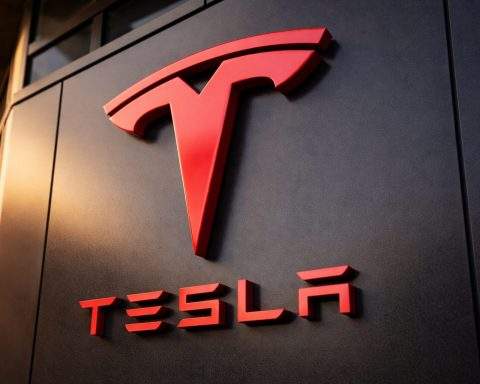Stay tuned as we break down the biggest global tech stories (excluding AI) that unfolded over the past two days, organized by category for easy scanning.
Consumer Electronics
- Smartphone Market Shifts: The United States smartphone market eked out just 1% growth in Q2 2025, even as vendors hurried stock into stores amid tariff worries reuters.com. The surprise? India-made phones are surging – for the first time ever, India became the top manufacturing hub for smartphones sold in the US, largely thanks to Apple’s supply chain shift away from China reuters.com reuters.com. “India became the leading manufacturing hub for smartphones sold in the US for the very first time in Q2 2025, largely driven by Apple’s accelerated supply chain shift to India amid an uncertain trade landscape,” noted Sanyam Chaurasia, a Canalys analyst reuters.com. But demand remains lukewarm: “The market only grew 1% despite vendors front-loading inventory, indicating tepid demand in an increasingly pressured economic environment,” added Runar Bjorhovde of Canalys 1 .
- iPhone 17 Pro Spotted? Apple fans are buzzing over leaked photos that purportedly show a test version of the iPhone 17 Pro in the wild. The images, shared on X (Twitter), depict a man using a mysterious iPhone with another person blocking onlookers theverge.com. Industry sleuth Mark Gurman (of Bloomberg) reshared the photos and fueled the hype, saying “This looks legit.” theverge.com Apple hasn’t confirmed anything, but the rumor mill is in overdrive – the device in the pics matches earlier leaks of Apple’s next flagship phone. With Google already teasing its upcoming Pixel 10, all eyes are on Apple’s next move in the premium phone showdown 2 .
Cybersecurity
- Mass Cyberattack Grounds Russian Flights: In a brazen cyber assault, pro-Ukrainian hacker groups claim to have crippled Russia’s flagship airline Aeroflot, forcing the cancellation of over 50 flights on Monday reuters.com reuters.com. Departure boards in Moscow lit up red with cancellations as the hackers boasted of breaching Aeroflot’s systems. The Kremlin called the situation “alarming” and prosecutors opened a criminal case, with a senior lawmaker warning this was a wake-up call: “We must not forget that the war against our country is being waged on all fronts, including the digital one,” said Anton Gorelkin, urging investigators to hunt down not only the attackers but also any insiders who allowed such a breach reuters.com. Aeroflot hasn’t said when operations will normalize, as Russian authorities scramble to shore up cyber defenses.
- Spy Agency Portal Breach: Stateside, a potential security breach at a U.S. spy satellite agency is under investigation. The National Reconnaissance Office (which oversees spy satellites) disclosed “an incident involving our unclassified Acquisition Research Center website” – a platform where intelligence contractors submit bids reuters.com. According to a Washington Times report, hackers may have stolen sensitive data on CIA tech programs (like a tool codenamed “Digital Hammer”) by targeting this contractor portal reuters.com reuters.com. The NRO is working with federal law enforcement, while the FBI and CIA declined to comment reuters.com. This incident has raised concerns that even supposedly secure government contracting systems are being probed by cyber spies.
Semiconductors
- Chip Slowdown Hits Suppliers: The global chip glut continues to bite. Germany’s Siltronic, a major supplier of silicon wafers to semiconductor makers, cut its sales forecast for the year amid persistently weak demand and high customer inventory levels reuters.com. The company now expects 2025 revenue to fall below last year’s, rather than remaining flat. “The visible growth in end markets has so far not led to a normalization of inventory levels at chip manufacturers. As a result, there is still no noticeable recovery in demand,” CEO Michael Heckmeier lamented in a statement reuters.com. In other words, chip buyers are still working off stockpiles, and orders for new wafers are sluggish – even as consumer electronics and auto makers cautiously ramp up production.
- Export Violations Cost Cadence $140M: In a high-profile tech trade enforcement case, Cadence Design Systems agreed to plead guilty and pay $140 million in fines for illegally selling chip design software to a Chinese military university in defiance of U.S. export controls reuters.com. U.S. officials say Cadence’s tools were sold via front companies to China’s National University of Defense Technology – an institute involved in nuclear weapon simulations reuters.com. The U.S. Commerce Department had blacklisted that university in 2015, but Cadence’s sales slipped through until now. Caught in the act, the Silicon Valley firm noted it was “pleased” to settle with the Justice Department and tighten up compliance reuters.com. The case underscores that Washington is still serious about policing tech exports to China’s military, even as broader trade talks between the nations continue 3 .
Space Tech
- NASA and Roscosmos Reconnect: In a rare bit of U.S.-Russia cooperation, the heads of NASA and Roscosmos are set to meet face-to-face for the first time since 2018 reuters.com. Roscosmos chief Dmitry Bakanov traveled to Houston to meet NASA’s interim leader Sean Duffy on July 31, according to Russian state media. “The parties plan to discuss ongoing joint projects,” Roscosmos stated, hinting at a focus on the International Space Station reuters.com – one of the last bastions of U.S.-Russia collaboration. Bakanov said talks will cover extending the ISS’s lifespan and a joint effort for the ISS’s eventual safe deorbiting into the ocean reuters.com. With most other US-Russia ties severed since the Ukraine invasion, this meeting is a noteworthy signal that space diplomacy is still alive and kicking.
- Firefly’s $5.5B Space IPO: The new space race is heating up on Wall Street. Firefly Aerospace, a Texas-based launch startup backed by Northrop Grumman, filed for an IPO aiming for a $5.5 billion valuation reuters.com. Firefly builds rockets and spacecraft, and it plans to sell 16.2 million shares at $35–$39 each as it taps into rebounding investor appetite for high-growth tech offerings reuters.com reuters.com. The U.S. IPO market has been thawing after a 3-year slump, and Firefly’s timing looks good – recent listings like fintech Chime and crypto firm Circle have boosted optimism reuters.com. “Although it isn’t riding on the hype of the current cryptocurrency and AI craze, Firefly still promises growth, represents a diversified portfolio exposure and plays to a defense investment theme,” said Samuel Kerr, head of equity capital markets at Mergermarket reuters.com. In short, Firefly offers investors a pure play in the booming satellite launch sector without the froth of trendier tech fads.
Telecom
- Telco Earnings Bright Spot: In telecom news, mobile operators in emerging markets are seeing solid growth. Telefônica Brasil – Brazil’s largest wireless carrier (majority-owned by Spain’s Telefónica) – reported a 10% jump in Q2 net profit year-on-year reuters.com. The company’s earnings (1.34 billion reais, about $240 million) slightly beat analyst expectations reuters.com reuters.com, thanks to a 7% rise in revenue driven by its core mobile phone business reuters.com. The performance underscores strong demand for mobile services in Brazil, even as the carrier faces intense competition. Telefônica Brasil’s subscriber base and cost controls helped it weather economic pressures better than many peers. With many global telecom giants struggling, this result from South America provides a welcome bright spot in the telecom sector.
- (No major 5G/6G bombshells reported in the past 48 hours.) Aside from earnings, it’s been a relatively quiet couple of days on the telecom infrastructure front – no sweeping 5G rollouts or spectrum auctions to report for July 28–29. Industry watchers are, however, keeping an eye on ongoing 6G research collaborations and regulatory debates on network fees (none of which hit a crescendo in this two-day window).
Automotive Tech
- A Cheaper EV Pickup – But Hurry! A Jeff Bezos-backed startup, Slate Auto, is betting big on an ultra-affordable electric pickup truck – but changes in U.S. policy could rain on its parade. Slate’s tiny, boxy EV pickup grabbed attention with its sub-$20,000 price tag, attracting over 100,000 reservations from folks drawn to its crank-window, no-frills design reuters.com reuters.com. “The Slate was the first time that I looked at a car, wanted it, and could also really make it happen,” said one eager customer, who loved the idea of an inexpensive truck reuters.com. However, that attractive price relies on a $7,500 federal EV tax credit – which President Trump’s new budget law will end on Sept. 30, seven years earlier than planned reuters.com. Without the subsidy, “that’s just plain too much,” the customer sighed reuters.com. Slate’s CEO Chris Barman insists their minimalist EV can fill a market void: “We are building the affordable vehicle that has long been promised but never delivered,” he said at a recent conference reuters.com. With U.S. EV sales cooling and many startups burning cash, Slate’s launch late next year will be a litmus test for EV affordability in the post-subsidy era.
- Robotaxis Rev Up: The race to autonomous ride-hailing is accelerating. Alphabet’s Waymo announced it will launch its driverless taxi service in Dallas in 2026, expanding its footprint beyond Phoenix, San Francisco, Los Angeles and Austin reuters.com. In Dallas, Waymo is teaming up with rental car giant Avis, who will maintain the fleet of electric Jaguar SUVs that shuttle riders around reuters.com. This expansion comes as rival Tesla is also piloting its own “robotaxi” vehicles in limited trials. In fact, Elon Musk recently signaled Tesla will rapidly broaden its robotaxi programs to new cities – he’s already seeking regulatory green lights in California, Nevada, Florida and Arizona reuters.com. Waymo, which says it’s completing 250,000+ paid trips per week with around 1,500 autonomous vehicles on the road today reuters.com, seems determined to stay ahead of Tesla. For Dallas residents, self-driving rides could be just months away, marking another milestone in autonomous cars becoming mainstream.
Green Tech
- Australia “Supercharges” Renewables: Australia is dialing up its investment in green energy to hit an ambitious target of 82% renewable electricity by 2030. This week Australian Energy Minister Chris Bowen announced a 25% expansion of the government’s Capacity Investment Scheme, which underwrites large wind, solar, and battery projects reuters.com. The scheme will now support an extra 8 GW of clean generation and storage, raising the program’s total to 40 GW of capacity reuters.com – enough to power millions more homes. “As our ageing coal-fired power stations only become more expensive and more unreliable, we need new generation now,” Bowen urged in a speech to investors, emphasizing the urgency of the transition reuters.com. He noted that tender rounds for renewable projects have been “consistently and massively oversubscribed,” signaling huge private sector appetite reuters.com. Analysts warn Australia still risks falling short of its 82% goal due to grid connection bottlenecks reuters.com. But with the cost of batteries and solar panels plummeting, the government sees an opportunity to “supercharge” the shift to green power reuters.com. The expanded underwriting plan will drive an estimated A$21 billion ($13.7 billion) in clean energy investment and add 3 GW of wind and solar to supply an extra 1 million homes 4 .
- Other Green Tech Updates: Beyond Australia, the past 48 hours saw steady progress in sustainable tech projects worldwide. In the US, wave energy made waves – Eco Wave Power announced it finished installing wave-energy floaters at the Port of Los Angeles, moving closer to generating clean electricity from ocean waves (as reported in trade press). And in Brazil, Atlas Renewable Energy secured $179 million financing to build a 579 MW solar farm pv-tech.org, one of the largest in Latin America. While these didn’t grab major headlines, they underscore a broader trend: from solar to tidal power, green tech projects are charging ahead to meet global clean energy goals.
Policy/Regulatory Changes
- Senator vs. Starlink Scams: U.S. lawmakers are turning up the heat on tech providers enabling crime. Senator Maggie Hassan penned a stern letter to Elon Musk urging SpaceX to cut off Starlink internet service to scam operations in Southeast Asia reuters.com reuters.com. She cited reports that Starlink’s satellite broadband is being used at illicit “scam compounds” in countries like Myanmar, Cambodia and Laos, where criminal networks traffic workers to run fraud schemes targeting Americans reuters.com reuters.com. “SpaceX has a responsibility to block criminals from using the service to target Americans,” Hassan wrote, in a plea for Musk to act reuters.com. The U.S. Treasury recently said these syndicates defrauded Americans of billions of dollars reuters.com. SpaceX hasn’t yet responded. The episode highlights growing regulatory pressure on satellite and telecom firms to police how their networks are used – even in far-flung, lawless corners of the world.
- Trump’s EV Rollback Sparks Backlash: The tech policy world is buzzing over President Donald Trump’s new law slashing EV incentives, a move experts say will pump the brakes on electric car adoption. The “One Big Beautiful Bill” (signed earlier this month) kills off the $7,500 federal tax credit for new EVs on Sept. 30 (along with the $4,000 used EV credit), seven years ahead of schedule reuters.com. It also ends key EV battery production credits by 2028 and cancels stringent emissions rules – effectively reversing much of the previous administration’s climate agenda reuters.com reuters.com. Blue-state officials are fighting back: California’s Governor Gavin Newsom vowed to legally challenge Trump’s rollback of state EV mandates, calling it an overreach reuters.com. A federal judge has already issued an injunction forcing the feds to release some EV charging funds that were frozen by the new policy reuters.com. Industry leaders warn of short-term pain: “The EV uptake will slow in the short term following big cuts to federal support,” analysts at Rystad Energy predict reuters.com. Their forecast for EVs’ share of U.S. auto sales in 2030 dropped from 24% down to about 19% due to these policy changes reuters.com. Still, automakers aren’t retreating entirely – many are accelerating U.S. battery factory plans to qualify for Made-in-USA incentives, hoping that strong consumer interest and state-level programs can keep EV momentum alive despite the federal pullback.
- Tech Export Enforcement: U.S.-China tech tensions yielded a noteworthy enforcement action on July 28, as mentioned above: Cadence Design Systems’ guilty plea over illegal China sales reuters.com. The hefty $140 million fine serves as a warning shot to other tech firms – the Biden (and Trump) administrations are willing to enforce export control violations, even while negotiating trade deals. Similarly, U.S. regulators this week signaled tougher scrutiny of Chinese telecom gear in American networks (no new rules yet, but ongoing reviews of companies like Huawei and ZTE were reported). On the European front, the EU’s Digital Services Act and other tech regulations continue to roll out, though no specific actions fell on these two days. All told, the regulatory pendulum is swinging toward stricter oversight of tech – from international sales to how products are used – and the latest developments from July 28–29 underscore that trend.
Sources: The roundup above is compiled from reputable outlets including Reuters, The Verge, and official statements. For more details, see the cited references reuters.com reuters.com et al. Each link points to the original news reporting or document for those who want the full story.






